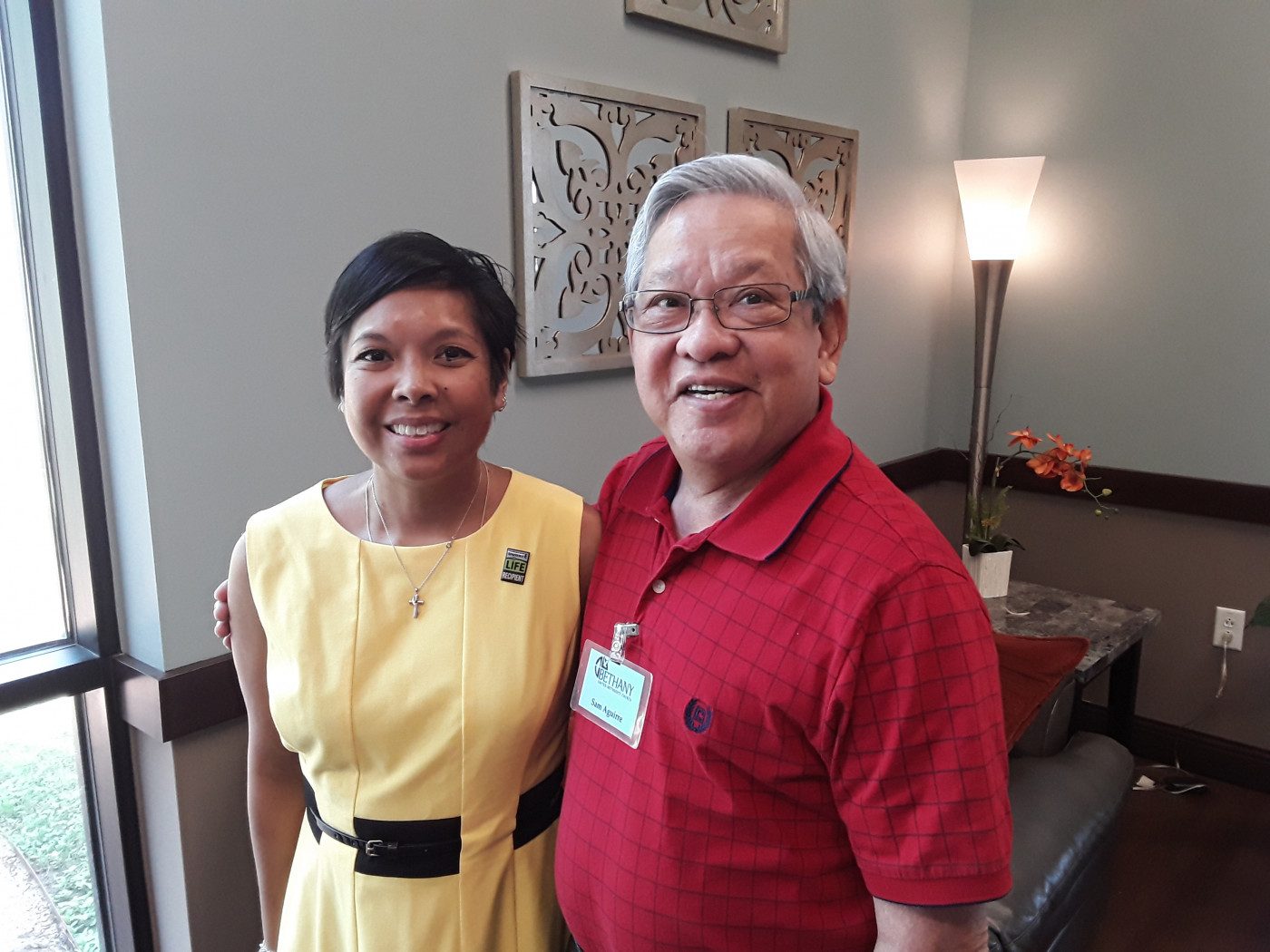I inherited many traits from my dad: my need for organization and order, love of math, problem-solving abilities, and powers of deduction. I also received his sensitive skin and delicate digestive tract.
I became aware of my dad’s gastrointestinal issues in 1987 when I was 14 and he was 49. I woke up in the middle of the night to my mother calling an ambulance because my dad had collapsed when he got up to use the bathroom. At the hospital, doctors discovered a pinhole in his colon where the contents had leaked out and caused an infection. The surgeon performed a partial colectomy, removing an 8-inch section of his infected colon.
The surgeon was surprised that my dad hadn’t experienced any pain before ending up in the emergency room. “Prior to the attack,” my dad said, “I was experiencing bloating and distension of my belly, but no pain.” He was released from the hospital with no follow-up gastroenterology appointment.
In 2005, my dad had gastrointestinal symptoms again. “I was bloated and could not pass gas,” he said. “A common aftereffect of a colectomy is a tendency toward intestinal blockage or constriction.”
My two sisters and I traveled to Oklahoma City to be with our dad as he underwent surgery to remove 6 inches of obstructed colon, and our family spent Christmas Day in his hospital room. When my mother had called to tell me that my dad was sick, I prayed to God to take away his pain and give it to me because I was younger and stronger. Ironically, I received my diagnosis of Crohn’s disease the following year.
In 2012, routine bloodwork for his annual checkup showed my dad had a low hemoglobin level. After a fecal occult blood test came back positive, his primary care physician (PCP) sent him to a specialist for further testing.
“My PCP referred me to the gastroenterologist. He did a colonoscopy and found a 5-centimeter tumor in the colorectal area, but the biopsy was inconclusive,” my dad said. “He recommended that I have a deep biopsy, which confirmed cancer.”
My dad received chemo and radiation therapy to shrink the tumor before he had it surgically removed. Following the surgery, he had a temporary ileostomy that was reversed after six months. I’m happy to say that my dad is healthy and in his sixth year of remission.
Until my dad’s cancer diagnosis, I hadn’t made the connection between his medical issues and mine. When I asked my dad if he had gastrointestinal problems when he was younger, he said, “I had frequent bouts of gastritis when I overate or had spicy and fatty foods.” He took antacids to treat the symptoms and avoided foods that exacerbated his symptoms.
He also told me he had ileocolitis when he was 7 or 8 years old. I was shocked to learn that ileocolitis is one of the most common forms of Crohn’s disease. So, why didn’t my dad receive a formal Crohn’s or IBD diagnosis that could have prevented his subsequent gastrointestinal issues?
To answer that question, I delved into the disease’s history. I learned that Dr. Burrill Bernard Crohn and his colleagues, Drs. Gordon D. Oppenheimer and Leon Ginzburg, first described ileitis in 1932, less than a decade before my dad’s ileocolitis diagnosis. I discovered the article “Historical origins of current IBD concepts” published in the World Journal of Gastroenterology, in which Joseph B. Kirsner wrote, “An epidemiological approach to inflammatory bowel disease was not feasible until the 1950s.”
So, maybe my dad wasn’t formally diagnosed with IBD because knowledge of the disease was limited at the time or because he didn’t present with chronic symptoms requiring medical attention.
Another interesting fact that I discovered this past year is that both my dad and I are 0.1 percent Ashkenazi Jewish. Researchers led by a team at Cedars-Sinai reported in 2018 that “people of Ashkenazi Jewish descent develop Crohn’s disease … at higher-than-average rates.” Although a minuscule percentage of our DNA is Ashkenazi Jewish, perhaps that’s all it took to wreak havoc on our digestive system.
They say that the way to a man’s heart is through his stomach, but the bond that I have with my dad is through his intestine. I may have a higher risk for colorectal cancer because of my dad’s history, but I’m closely monitored and thereby have a better chance at beating the odds. At 81 years old, my dad is still the strongest and smartest man I know. I may not have followed in his footsteps to become an engineer like he wanted me to do, but he taught me how to be a survivor.
Happy Father’s Day, Daddy!
***
Note: IBD News Today is strictly a news and information website about the disease. It does not provide medical advice, diagnosis, or treatment. This content is not intended to be a substitute for professional medical advice, diagnosis, or treatment. Always seek the advice of your physician or other qualified health providers with any questions you may have regarding a medical condition. Never disregard professional medical advice or delay in seeking it because of something you have read on this website. The opinions expressed in this column are not those of IBD News Today, or its parent company, BioNews Services, and are intended to spark discussion about issues pertaining to IBD.

